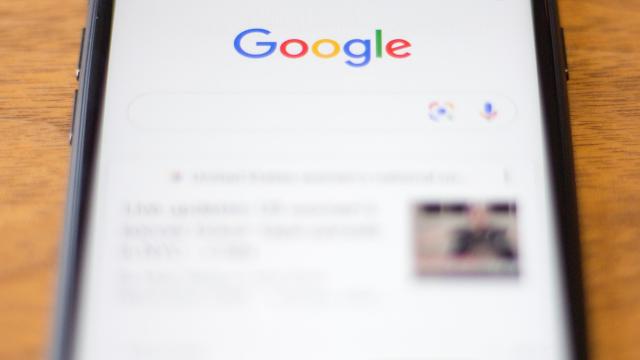On Thursday, French authorities finally accomplished the impossible: getting Google to agree to pay news outlets the licensing fees they’ve spent more than half a decade begging for.
The decision came following “many months of negotiations” with France’s competition authority after it ordered the tech giant to start negotiating licensing fees with local news publishers back in April of last year. Specifically, the Autorité de la Concurrence took issue with Google’s mandate that required EU-based publishers to offer the company free reign to access its content if they wanted their stories to be displayed on products like Google Search or Google News.
The rationale here, as Google VP Richard Gingras put in a blog post at the time, was that the company “[sells] ads, not search results.”
“We don’t accept payment from anyone to be included in search results,” he went on. “That’s also why we don’t pay publishers when people click on their links in a search result.”
Regional publishers called foul pretty quickly, and nobody was louder about this than the French. The country was the first and so far only player in the EU that adopted the European Union’s proposed “copyright reform” law that was voted through the EU’s parliament in March of 2019 before being officially put into action throughout France the following October.
Among a fair share of other semi-controversial statutes, one sticking point for the tech companies of the world was a new set of legal rights allowing publishers to go after players like Facebook, Google, and their ilk if they fail to offer a “fair and proportionate remuneration” for the “digital use” of their press assets.
It’s the type of legal requirement that seems tricky to wiggle out of, but Google’s had a lot of practice as of late. When authorities in Spain enacted a similar set of anti-competitive copyright measures way back in 2012, Google chose to shut down Google News for the entire country instead of complying. When Google largely eschewed the German version of these mandates that the country put into practice in 2013, major publishers quickly realised that boycotting Google’s adtech business would cause their own to plunge — and they were better off giving up their content for free rather than waging that war. Years later, when a German publisher consortium ended up taking Google to court over some of these — I’ll just say it — extrortion-y tactics, German justice officials sided with the company anyway.
And that’s not even touching on the kerfuffle happening in Australia right now over its own proposed copyrighting mandate — an idea that Google is doing its darndest to lobby against. So, you can kind of see why the company’s choice to finally cave in one of these major markets is a big shift.
What the Google-France handshake will look like in practice is still being ironed out. In a blog post, Google said it will “negotiate individual licence agreements” with a selection of sites that have scored their IPG certification with the French government for their work publishing “political and general information.” Because we’re translating from the corporate blog post’s original French, we’ve reached out to Google to clarify whether this category is as absurdly broad as it sounds at first glance.
The regional authority issuing this certification — La Commission paritaire des publications et agences de presse (or just CPPAP) define an outlet in the political-and-general story sphere as one:
whose main purpose is to provide, on a permanent and continuous basis, information, analyses and comments on local, national or international political and general news likely to shed light on citizens’ judgment.
“This information must be of interest significantly exceeding the concerns of a category of readers,” the CPPAP goes on, adding that these sites need to employ at least one “professional journalist,” and must promise not to dabble in stories that skew “violent or pornographic.” In other words, the general rules are simple enough that any reputable publisher shouldn’t be too worried about getting the IPG stamp of approval.
Google doesn’t clarify these details in the blog, but it does note that its donation calculations will factor in certain hard numbers, like the number of stories an outlet pumps out per day and the monthly readership these stories end up garnering.
But at the end of the day, the distinction between what is and isn’t a “general” or “political” story is still one that’s subjective. Gizmodo dot com, for instance, puts out its fair share of political stories, but is also home to dog blogs, carp blogs, and the occasional piece on how friggen weird it is that conches have eyes. Is that “general” enough for CPPAP — and Google, for that matter? How will Google distinguish between political journalism and political clickbait when doling its dollars out? How do newsletters factor into this decision? Dear god, what about the op-ed columns?
As is the case with just about every major Google policy decision, these sorts of machinations are left in some vague dark pit that the company won’t disclose, and — if what we saw in Germany still holds true today — ultimately knows it doesn’t have to. Somehow, even when publishers celebrate their own small wins against Google, they’re still trapped in a cycle where all they can do is lose.
